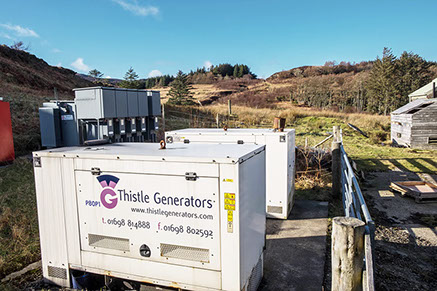Project Outline
PROJECT Aim
“To identify optimal solutions for decarbonising heat in isolated communities”
PROJECT OBJECTIVES
In order to achieve this we set out the following objectives:
-
- Understand the requirements for small, off-grid electrical networks.
- Assess demand reduction strategies.
- Investigate relevant renewable heat technologies.
- Assess their socioeconomic, technical and environmental viability.
- Propose solutions.
PROJECT SCOPE
We aim to limit our proposed solutions to ultimately:
-
- The use of existing, proven technologies.
- Realistic financial constraints.
- Consideration of environmental impacts.
The development of this project essentially involved working around a defined approach. There are six key considerations in developing a renewable heat system, as outlined below.

First and foremost, it is necessary to see if the demand is there: how much heat the target community use and where it comes from currently, if at all. Importantly, it is necessary to investigate if there are means of reducing demand. Reduction would be through methods such as thermal insulation or altering consumer behaviour.
This leads on to assessing the existing infrastructure to see what kind of boilers, cookers and heating they have. If they already have wood boilers, for example, it may be more economic to build a forestry industry than install new electric boilers. Beyond this, it is worth examining their electrical network in terms of cost, stability, and room for expansion.
When the current situation is understood, the further steps become an iterative process - to map the local resources and see what can be exploited in the most environmental and economic way. These elements should then be optimised in accordance with the communities priorities.
The following section describes how we implemented this approach to reach our conclusions using Eigg as a case study.
The Isle of Eigg
The pages below give some insight into the Isle of Eigg and its current situation with respect to location, climate, motives and progress towards a greener, more sustainable future.
Click on the links below to explore Eigg; why it was chosen for our case study, and its current electrical configuration.

A technical overview of the current state of Eigg's electrical network.
An Introduction to the Isle of Eigg
© University of Strathclyde | TEC Eigg | Sustainable Engineering 2016